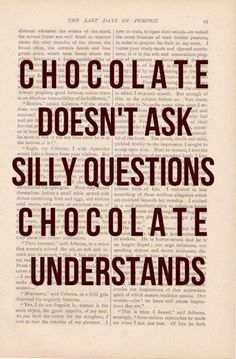You never really realize how biased your own Google search is on your laptop until you’ve taken a step out of your bubble to compare the results. Everything you do on the internet is watched and recorded. Not only do the cookies you accumulate go towards this cloud of “you info”, but the permissions you grant Google in order to have certain functionality do not necessarily have limits. Fore example, in order to use Google Maps, you must give it permission to use your location data. In order to use Google Hangouts, you need to grant access to the camera and microphone. There are certain privacy guarantees that wouldn’t allow Google to tap into your webcam spontaneously, but your location, for example, is heavily taken advantage of in their search result algorithms, for example. Some evidence of this is in the first screenshot below. In a search for chocolate, I get results very specific to my location. This is interesting also because of the business techniques in the underbelly of Google search algotrithms too. Businesses can specifically pay for their webpage to be a top hit, and target those in their area (like me, searching for chocolate). Add in the date proximity to Valentines Day, and the results will be heavily geared towards commercial marketing.
In a more neutral search page, such as the Dartmouth College Library Website, the results are much different. This is not only because the pool of results are coming from different sources (Google has a massive collection), but also because of the underlying techniques used to create results, aka the algorithms. This is when being familiar with the actual algorithm would help a digital humanist! A search for chocolate returns so many things, recipes, facts, stores. So the outputs or main goals(transformations) are not always clear to the algorithm.

One response to “Quest for Chocolate”
This is a well-timed example! I wonder if the algorithm on Google and the results you receive will change over the next 4 days or so before Valentine’s day. In other words, I wonder how much movement or change there is within Google’s algorithm around holidays or commercial events. I wonder how big their team of algorithm analysists is! I also wonder what Dartmouth’s institutional filters do to the algorithm. Lots of questions —